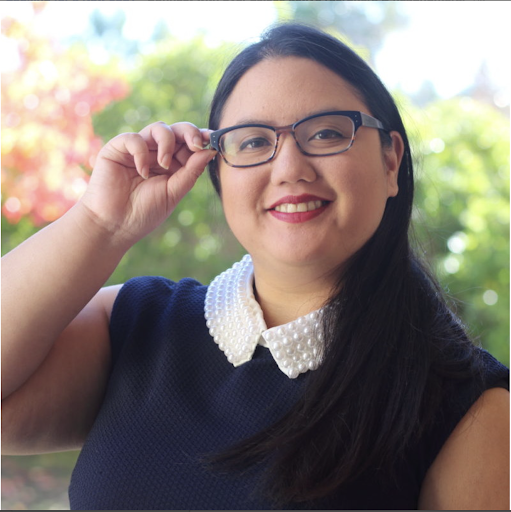Community Spotlight – Seema Gururaj
Tech workers from across the Bay Area are joining TechEquity’s network and are giving their time, skills, and financial support to make their communities more equitable. We’re proud of our growing community full of smart, passionate, engaged citizens and we want to celebrate their contributions!

Meet Seema
Seema Gururaj is the founder and CEO of Square Circle, where she focuses on providing unique learning experiences to accelerate an organization’s goal towards achieving a safe, ethical, and equitable workplace. Previously, she served as the Global Lead for Tech Women at Intuit, was the Director of the Grace Hopper Celebration of Women at the Anita Borg Institute, and was an Engineer leader at IBM. Seema lives in the San Francisco Bay Area and outside of work she enjoys learning Bharatanatyam, a classic Indian dance form.
What led to that moment of political awakening for you? That moment when you realized it was time for a change?
I had my political awakening about 15 years ago. I was focusing on projects having to do with socio-economically underprivileged children in India. I was sitting in a room with politicians, and here was Engineer Seema, dead center in a program for underprivileged children, children who were the future of India. It was so glaringly obvious that the system was not equipped to truly support these children. I couldn’t sleep at night because this was a moment where I had access to a problem, but I still felt helpless. That experience taught me that there are people within political realms who have good intentions but have to make very complex decisions every day. And to us, it feels like the change is so excruciatingly slow. So at that moment, I realized that Engineer Seema could—and must—do more.
How has TechEquity impacted your civic participation?
I had the opportunity to be part of TechEquity Collaborative’s Lobby Day. We talked to Assemblymembers about SB 331, The Silenced No More Act and SB 4, Internet for All. Had it not been for TechEquity, I wouldn’t have known that one could reach out to your Assemblymember and talk to them about these issues that were so deeply ingrained in me. I felt liberated because I was dealing with all these issues in an internal, constricted way, with minimal opportunity to find solutions. I felt helpless, but then I was afforded this opportunity that empowered me. It gave me wings to do the work that I do today.
Going into Lobby Day, I felt very prepared. I could finally represent all the voices of these people who use me as a container to share, who trusted me so profoundly with their stories, and I finally had an outlet on their behalf. I was also listening to what the Assemblymembers cared about, how they approached issues. Before this, I had little understanding of just how complex decision-making goes into the legislative process. I wanted to make sure that SB 331 didn’t get buried under a pile of papers. I wanted to make sure that they heard me loud and clear, and I was afforded this opportunity with Lobby Day.
How does a bill like SB 331, The Silenced No More Act, having to do with workplace protections hit home for you? Very deeply! My work, which has spanned almost 15 years now, is primarily on gender equity. The number of hoops that one has to go through to get justice, whether it’s sexual harassment or discrimination based on gender or race, is tremendous. Not to mention the emotional toll and trauma you are going through with keeping a full-time job and dealing with something like this. You’re living with the possibility of retaliation. Possibility of unintended consequences. And then it becomes a question of choosing your career or moving on. I know the mental and emotional toll that it’s taking on this individual while keeping a job and keeping their families going. It’s traumatic.
When SB 331, the Silenced No More Act, was introduced, I felt like it was speaking to thousands of women and so many of my colleagues. I felt like I was the first of thousands of women behind me saying finally. There is a bill that says there’s a way for us to get justice. I’m grateful that SB 331 is more expansive of different types of discrimination. SB 331 will allow for the burden of guilt and shame to be taken away from people experiencing discrimination, so more of us can share our stories and genuinely create workplaces that are safe and equitable.
How can tech workers begin to understand or participate in advancing change in their communities?
Just gaining awareness and then educating yourself of all the amazing tools and resources that TechEquity provides is the first step of that conversation; then you get to do something about it. Think bigger; think about an issue and how it affects the community. When that level of awareness is reached, then naturally, you want to act. You become eager to advocate and eager to push the status quo. I would encourage tech workers to join TechEquity Collaborative and become members because that’s where you get a better understanding of how what you’re doing impacts people around you.
Personally, what I found at TechEquity is a great community that is very organized; it provides excellent tools and great resources around key issue areas. It’s a safe place to ask dumb questions and learn to develop yourself, so you can learn how you can join this movement to help our society be more equitable. Because if Engineer Seema can do something about it, so can you; there’s no excuse for us to sit back anymore.





